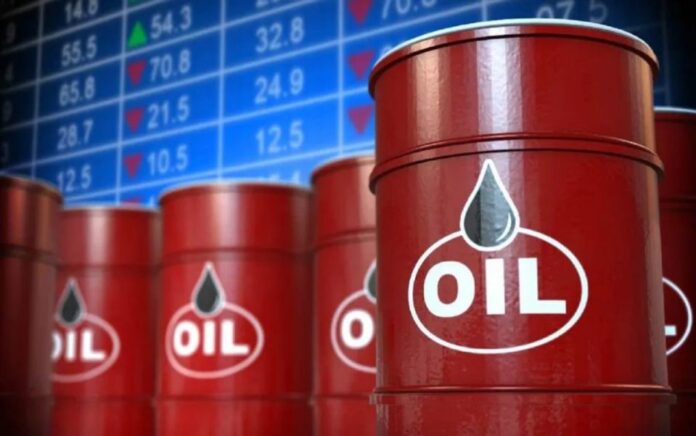Oil gains on Chinese data and fears of Israel-Lebanon ceasefire collapse
CHIGOZIE AMADI
Oil prices rose on Monday, as strong factory activity in China buoyed hopes of higher demand, and as escalating tensions in the Middle East, where Israel resumed attacks on Lebanon despite a ceasefire deal, spurred supply concerns.
According to Reuters, Brent crude futures climbed 36 cents, or 0.49%, to $72.20 a barrel by 10:44 a.m. EST (1544 GMT) while U.S. West Texas Intermediate crude rose 34 cents, or 0.5%, to $68.33.
“Crude futures are gaining support this morning on positive economic data from China, as well as expectations that OPEC will delay production increases at the upcoming meeting in December,” Dennis Kissler, senior vice president of trading at BOK Financial.
“Increased geopolitical risks remain. Even though the ceasefire is underway in Israel, it seems evident that there are some misconceptions about the legitimacy of the ceasefire,” he added.
Traders also watched developments in Syria, weighing whether recent escalation could widen tensions across the Middle East and affect supply.
A private sector survey showed China’s factory activity expanded at the fastest pace in five months in November, boosting Chinese business optimism just as U.S. President-elect Donald Trump ramps up his trade threats.
A ceasefire between Israel and Lebanon, which took effect last Wednesday, appeared increasingly fragile. Lebanese authorities said that at least two people were killed on Monday in Israeli strikes on southern Lebanon. Meanwhile, airstrikes intensified in Syria as President Bashar al-Assad vowed to crush insurgents in Aleppo.
Both crude benchmarks fell more than 3% last week, pressured by easing supply concerns from the Israel-Hezbollah conflict and 2025 surplus forecasts, despite expected sustained output cuts.
The Organization of the Petroleum Exporting Countries and its allies, together known as OPEC+, postponed the group’s next meeting to Dec. 5. It will discuss delaying a planned oil output increase scheduled to start in January, OPEC+ sources told Reuters last week.
“Attention will be on the potential delay of the planned production hike, as an indefinite delay could alleviate downward pressure on prices,” said George Pavel, general manager at Naga.com Middle East.
This week’s meeting will decide policy for the early months of 2025.
“Money managers are sitting on the fence … the market is looking for clarity between the implication of the forthcoming Trump administration and OPEC+ supply policy,” said Harry Tchilinguirian at Onyx Capital Group.

























